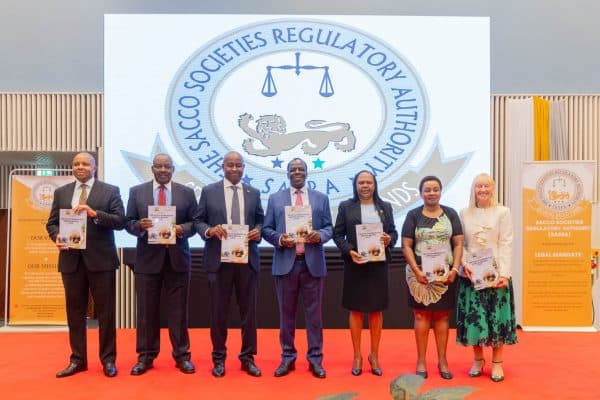We're loading the full news article for you. This includes the article content, images, author information, and related articles.
The move aims to tighten oversight on Kenya's cooperative sector and shield millions of members' savings from financial mismanagement following a string of governance lapses and fraudulent activities.

The Sacco Societies Regulatory Authority (Sasra) has announced its decision to permanently ban auditors who fail to submit statutory reports on the financial health of Saccos. This new directive is a significant step towards tightening the oversight of Kenya's cooperative sector, which plays a crucial role in mobilizing savings and providing credit to millions of Kenyans. The ban is aimed at curbing financial mismanagement and protecting members' savings, following a series of governance failures and liquidity crises that have plagued the sector.
In a circular dated Thursday, October 16, 2025, Sasra's acting CEO, David Sandagi, expressed concern over external auditors who have neglected to furnish the authority with the required statutory reports for the financial year ending December 2024. According to the Sacco Societies Act, these reports are due within four months after the end of the financial year, meaning they should have been submitted by the end of April 2025. Auditors who have not yet complied have been given a 30-day window to do so or face permanent expulsion from Sasra's register of approved external auditors.
Under Section 45 of the Sacco Societies Act, Sasra maintains a list of approved external auditors eligible to conduct audits for regulated Saccos. Removal from this list effectively bars an individual or firm from auditing any Sacco in Kenya. For the financial year ending December 2025, Sasra had approved 402 external auditors. The statutory report is a critical document that provides Sasra with an independent assessment of a Sacco's solvency, internal controls, and adherence to prudential standards. It is supplementary to the audit report given to the Sacco's management and is legally mandated.
The failure by some auditors to submit this report has deprived the regulator of vital insights into the financial health of Saccos, thereby hindering its ability to protect the billions of shillings in member deposits. The Act requires auditors to disclose if a Sacco is solvent, report any evidence of fraud or illegal activities, and flag violations of licensing conditions.
Sasra's firm stance comes in the wake of significant financial scandals that have shaken the Sacco sector. A recent forensic audit by PricewaterhouseCoopers (PwC) at the Kenya Union of Savings & Credit Cooperatives (Kuscco), the sector's umbrella body, uncovered a KSh 13.3 billion heist. The audit revealed years of fraudulent financial dealings, including the manipulation of books to declare non-existent profits. In another shocking discovery, financial statements were found to have been signed by a deceased auditor, pointing to clear forgery. These malpractices have led to KUSCCO being declared insolvent by KSh 12.5 billion, putting the KSh 24.8 billion in deposits from 247 Saccos at risk.
The fallout from the KUSCCO crisis has led to a crisis of confidence among members, with withdrawals from Saccos surging by KSh 30.8 billion in 2023. The scandal also exposed significant regulatory gaps, as KUSCCO, being an apex body, was not under the direct oversight of Sasra despite managing substantial member deposits.
The move by Sasra has been seen as a necessary step to restore trust and stability in the cooperative movement. Co-operatives and MSMEs Development Cabinet Secretary Wycliffe Oparanya has also directed Sasra and the Commissioner of Co-operatives to enforce stricter oversight on the preparation and auditing of Sacco accounts. These new measures include requiring internal auditors to provide their opinions on financial statements before external audits and holding both management and boards accountable for financial disclosures. The Institute of Certified Public Accountants of Kenya (ICPAK) has also been in consultative meetings with Sasra, emphasizing the need for greater accountability and transparency in the audit of Saccos. The financial scandals have been traced to poor audit quality, with some Saccos collapsing due to years of weak oversight. This has prompted calls for stricter rules on audit fee charges and auditor independence to ensure the integrity of financial reporting. By blacklisting errant auditors, Sasra aims to send a strong message that it will not tolerate professional negligence that puts members' savings at risk.
Keep the conversation in one place—threads here stay linked to the story and in the forums.
Sign in to start a discussion
Start a conversation about this story and keep it linked here.
Other hot threads
E-sports and Gaming Community in Kenya
Active 9 months ago
The Role of Technology in Modern Agriculture (AgriTech)
Active 9 months ago
Popular Recreational Activities Across Counties
Active 9 months ago
Investing in Youth Sports Development Programs
Active 9 months ago
Key figures and persons of interest featured in this article